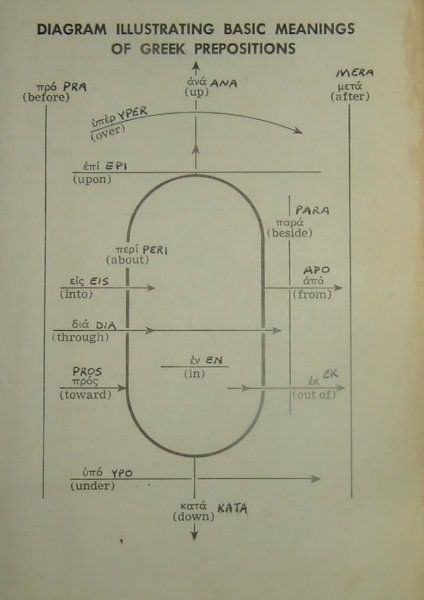Originally posted by Sparrowhawke,
That's when Jesus said that his kingdom was not of this world. He answered Pilot's question about why the Jews wanted him dead. He also assured Pilot that he was talking about his heavenly kingdom, not an earthly kingdom, saying if it were, his followers would fight.
Well, that is THE WHOLE POINT, is it not? Has Christ's Kingdom somehow changed, and become
"of this world"?
What were Christ's words to Peter and to all who know Him only
'after the flesh?' Can any today receive His words?
Matthew 26:52 "Then said Jesus unto him, put up again thy sword into his place: FOR ALL THEY THAT TAKE THE SWORD SHALL PERISH WITH THE SWORD."
We must admit that Christ did not say to Peter that
'Evil men who take the sword will perish with the sword.' No, Christ was talking to His own leading apostle when he said
"ALL who take the sword shall perish with the sword."
There are few indeed who can receive the words Christ gave to Peter. There are few indeed who are willing to follow Christ to the cross and die with Him.
Here are a couple of other sayings of Christ that are hard to receive.
Matthew 5:38 "Ye have heard that it hath been said, An eye for an eye, and a tooth for a tooth:
Matthew 5:39 But I tell you not to resist evil: but whosoever shall smite thee on thy right cheek, turn to him the other also.
Matthew 5:40 And if any man will sue thee at the law, and take away thy coat, let him have thy cloke also.
Matthew 5:41 And whosoever shall compel thee to go a mile, go with him two.
Matthew 5:42 Give to him that asketh thee, and from him that would borrow of thee turn not thou away.
Matthew 5:43 Ye have heard that it hath been said, Thou shalt love thy neighbour, and hate thine enemy.
Matthew 5:44 But I say unto you, Love your enemies, bless them that curse you, do good to them that hate you, and pray for them which despitefully use you, and persecute you."
Those few who can receive these words will reap great spiritual rewards. They will receive no physical rewards. On the contrary, they are promised:
Matthew 10:22 "And ye shall be hated of ALL MEN for my name's sake: but he that endureth to the end shall be saved."
"All Men" does not exclude our nation. We like to think that we are a
'Christian nation.' Yet we have murdered, and continue to kill, millions of our own children in the womb, and we forbid anything that 'HINTS' of Christianity in, or on our national and state properties. And we expect God to go into battle with us? This was the thinking of the fornicating priest-sons of Eli, when they took the ark of God into battle against the Philistines (see 1 Samuel 4)
"The glory had departed from Israel" (1 Samuel 4:22).
Do we really believe that simply because we are the world's only super power that
'the glory has not already departed' from us as a nation?
"Do NOT resist evil" has been replaced with
"the only thing necessary for evil to succeed is for good men to do nothing." Love your enemies has been replaced with
"Love your country."
It is in our very nature (carnal) to protect ourselves and others with arms if necessary is certainly a true statement. No one demonstrated this fact any better than Peter. But we are not called to succumb to
'our very nature.' We are called to
"overcome" it.
1 Corinthians 2:14 ".....the natural man receiveth not the things of the Spirit of God: for they are foolishness unto him."
Should we fight for our country? The problem for us is the same problem Christ had.
John 18:36 "My kingdom is not of this world: IF my kingdom were of this world, THEN would my servants fight, that I should not be delivered to the Jews: but now is my kingdom not from hence."
Again, is Christ's Kingdom somehow
"of this world" now - that we should fight?
Where is OUR CITIZENSHIP? How does Paul feel about his earthly citizenship?
Philippians 3:20 "For our conversation [Greek = citizenship] is in heaven; from whence also we look for the Saviour, the Lord Jesus Christ."
2 Corinthians 5:20 "Now then we are ambassadors for Christ, as though God did beseech you by us: we pray you in Christ's stead, be ye reconciled to God."
Notice what Luke says,
Luke 16:13 "No servant can serve TWO MASTERS: for either he will hate the one, and love the other; or else he will hold to the one, and despise the other."
Is this statement simply about money? Of course NOT. It's about ANY
"master" (Greek = "Kyrios"). And being
servants (Greek = oikétēs = "domestic servants" - i.e. ambassadors) of the Living God, shall we serve TWO MASTERS?
Luke 16:13 "No servant [ambassador]
can serve two masters [kingdoms = countries]
: for either he will hate the one, and love the other; or else he will hold to the one, and despise the other."
If Christ had taken the view of today's Christians, He would have said,
'Well, of course my kingdom is not of this world, but that doesn't mean that I am not to do all in my power to keep evil from succeeding.' ;)







 Hmmmm...
Hmmmm... 
 Harrumph!
Harrumph!